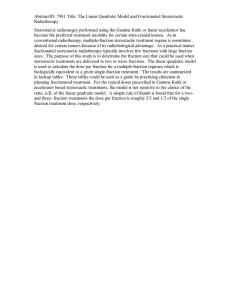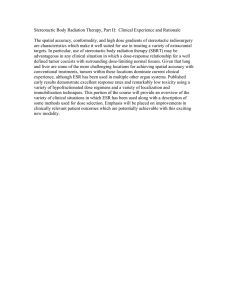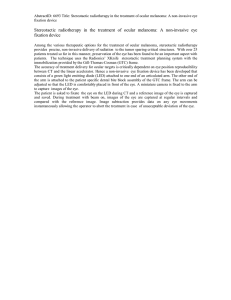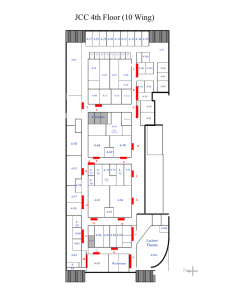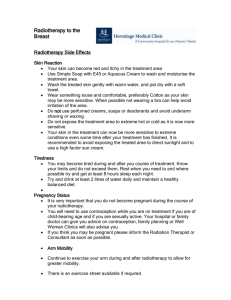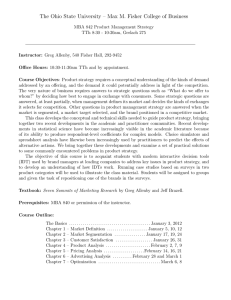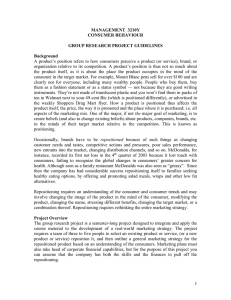AbstractID: 9256 Title: Accurate Determination of Patient Repositioning Errors in
advertisement
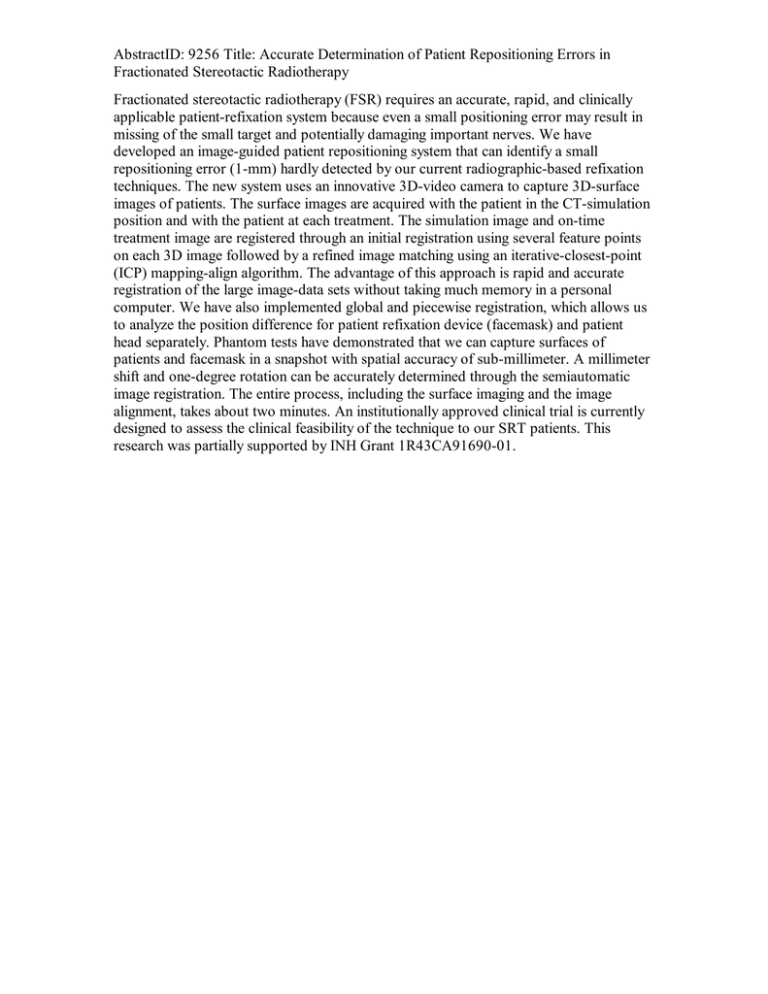
AbstractID: 9256 Title: Accurate Determination of Patient Repositioning Errors in Fractionated Stereotactic Radiotherapy Fractionated stereotactic radiotherapy (FSR) requires an accurate, rapid, and clinically applicable patient-refixation system because even a small positioning error may result in missing of the small target and potentially damaging important nerves. We have developed an image-guided patient repositioning system that can identify a small repositioning error (1-mm) hardly detected by our current radiographic-based refixation techniques. The new system uses an innovative 3D-video camera to capture 3D-surface images of patients. The surface images are acquired with the patient in the CT-simulation position and with the patient at each treatment. The simulation image and on-time treatment image are registered through an initial registration using several feature points on each 3D image followed by a refined image matching using an iterative-closest-point (ICP) mapping-align algorithm. The advantage of this approach is rapid and accurate registration of the large image-data sets without taking much memory in a personal computer. We have also implemented global and piecewise registration, which allows us to analyze the position difference for patient refixation device (facemask) and patient head separately. Phantom tests have demonstrated that we can capture surfaces of patients and facemask in a snapshot with spatial accuracy of sub-millimeter. A millimeter shift and one-degree rotation can be accurately determined through the semiautomatic image registration. The entire process, including the surface imaging and the image alignment, takes about two minutes. An institutionally approved clinical trial is currently designed to assess the clinical feasibility of the technique to our SRT patients. This research was partially supported by INH Grant 1R43CA91690-01.
